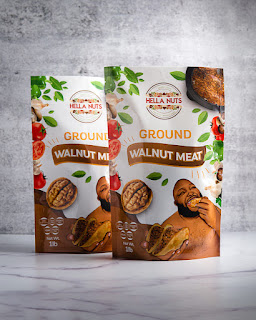The Benefits of PCR Packaging
Polymerase Chain Reaction (PCR) has revolutionized molecular biology, providing researchers with a powerful tool to amplify and analyze DNA. While much attention is given to the advancements in PCR technology itself, the significance of PCR packaging cannot be overstated. The packaging plays a crucial role in ensuring the reliability, efficiency, and precision of the PCR process. In this article, we delve into the key benefits of PCR packaging that contribute to the success of molecular biology applications.
1. Contamination Prevention:
One of the primary challenges in PCR is the risk of contamination, which can compromise the accuracy of results. PCR packaging, designed with utmost precision and using sterile materials, acts as a robust barrier against contaminants. It prevents the introduction of unwanted DNA or impurities that could interfere with the amplification process. As a result, researchers can trust the integrity of their samples, leading to more reliable and reproducible outcomes.
2. Sample Preservation:
PCR packaging is not only a shield against external contaminants but also a safeguard for the integrity of the samples themselves. The materials used in packaging are selected to preserve the stability of the DNA or RNA samples during storage and transportation. This is particularly crucial when dealing with precious or rare samples, where any degradation could lead to data loss. PCR packaging ensures that researchers have access to high-quality genetic material, enhancing the overall success rate of experiments.
3. Improved Thermal Stability:
PCR involves multiple cycles of heating and cooling to facilitate DNA denaturation and amplification. The packaging materials are engineered to withstand these extreme temperature changes, providing thermal stability to the reaction components. This feature not only protects the integrity of the reagents but also contributes to the overall efficiency of the PCR process. Researchers can confidently run thermal cycles without worrying about the packaging compromising the reaction conditions.
4. Ease of Handling and Storage:
PCR packaging is designed with user convenience in mind. Ergonomic designs and user-friendly features facilitate easy handling of reagents, primers, and other components. Properly labeled and organized packaging simplifies the workflow, reducing the risk of errors during experimental setup. Additionally, packaging that allows for efficient storage helps laboratories maintain order and accessibility to essential PCR components, streamlining the research process.
5. Customized Packaging Solutions:
Different PCR applications may require specific packaging considerations. Manufacturers now offer a range of customized packaging solutions tailored to the unique needs of various PCR techniques. Whether it's for quantitative PCR (qPCR), reverse transcription PCR (RT-PCR), or digital PCR, specialized packaging ensures optimal performance and accuracy. Researchers can choose packaging that aligns with the demands of their specific experiments, enhancing the overall efficiency and reliability of PCR applications.
6. Environmental Considerations:
With increasing awareness of environmental sustainability, PCR packaging manufacturers are also focusing on eco-friendly solutions. Packaging materials that are recyclable or made from sustainable sources contribute to reducing the environmental impact of molecular biology research. Laboratories can align their practices with eco-conscious principles without compromising the performance of PCR experiments.
In conclusion, the benefits of PCR packaging extend beyond mere containment of reagents. The packaging is an integral part of the molecular biology workflow, providing a protective shield against contaminants, ensuring sample integrity, offering thermal stability, enhancing ease of handling, and catering to diverse PCR applications. As technology continues to advance, the role of PCR packaging in supporting precise and efficient molecular biology research becomes increasingly crucial. Researchers and laboratories that recognize the importance of quality PCR packaging are better positioned to achieve accurate and reproducible results, pushing the boundaries of scientific discovery.


评论
发表评论